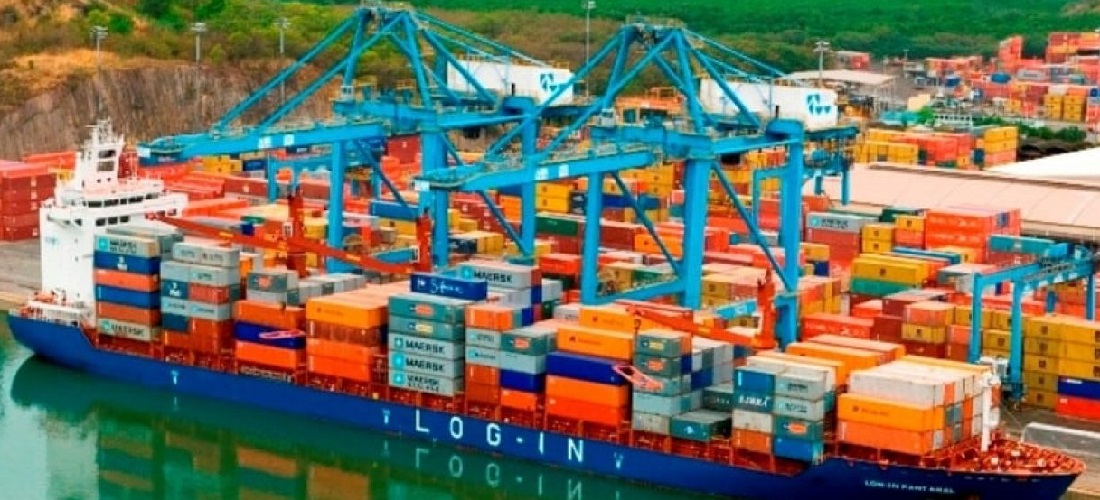
The opening of cabotage for foreign companies divides ministries
Sep, 11, 2019 Posted by Sylvia SchandertWeek 201938
The cabotage provisional measure, also known as BR do Mar, has put the Ministries of Economy and Infrastructure on opposing sides. This is because there are different views between the two areas as to whether companies can operate with or without their own vessel.
Currently, foreign companies face barriers to operate in Brazil and the closed environment is viewed with great reservation by the Ministry of Economy, which considers the package disclosed by the Infraestrutura to be lacking boldness.
The portfolio led by Minister of Infrastructure Tarcísio Freitas also believes that the rules of the sector must be more flexible, and expects to triple the growth of transport, reaching 30% per year.
But the two ministries disagree on one point: while the Ministry of Economy understands that cabotage companies could operate without having their own vessels in Brazil, the Ministry of Infrastructure considers that this foundation is important to protect the market from external volatility – a greater demand in other countries could cause a shortage of ships in Brazil.
According to information from Estadão/Broadcast, members of the ministries have tried to come up with a more convergent proposal in recent weeks. According to Infrastructure sources, these conversations could result in a more flexible design compared to what has already been presented, without fully bending to the full opening that the Ministry of Economy envisions for the sector.
According to data from the National Transport Confederation (CNT), 162.9m tons were transported in 2018 by cabotage, an increase of 4.1% compared to 2017. This mode currently accounts for 11% of the cargo transportation market in the country.
Foreign vessels
One of the main reasons for the Ministry of Economy’s resistance is related to the rules of hiring foreign vessels to operate in Brazil. In the program presented by the Ministry of Infrastructure, the economic group will have to operate with Brazilian flag vessels to charter (hire) foreign vessels – without having to suspend the flag (ie. to adapt to Brazilian rules), which reduces costs in a proportion of 50%. That is, for every two ships companies could use a foreign ship without restriction.
Today, companies can only use these ships when there is no Brazilian ship available for shipping.
For the Ministry of Economy, this kind of “ballast” should not exist, because it overprotects the national cabotage market, which today is concentrated in a few companies.
There are currently three cabotage companies with regular routes operating in Brazil. On the other hand, Infrastructure technicians believe that the possibility of the business operating only with foreign vessels brings a high risk of volatility to the sector.
The advantages to foster new routes will also be directed to the port terminals. According to the National Secretary of Ports, Diogo Piloni, the investor may install a port terminal without the use of bidding, through the temporary use contract, for four years.
After the deadline, if the line becomes viable, the company would then participate in the normal bidding processes. The idea is to offer a “trial” period of the operation, without the company having to shell out a large amount of resources, which can reach US$50m.
Although the text of the program is already well under way, the government has not yet announced if the new rules will come into force by provisional measure or if it will opt to send a bill to Congress. For now, experts and the local market have positively evaluated what has already been announced by the Ministry of Infrastructure.
For the president of the Brazilian Association of Cabotage Shipowners (ABAC), Cleber Lucas, the expansion of charter rules is quite significant and, given the counterparts prepared by the Ministry of Infrastructure, is able to balance the Brazilian market well with that of the markets abroad. “Shipping market is very liquid, if it develops local market only with the foreign, in a first increase of the world economy this asset leaves here and goes straight to more interesting markets,” says Lucas.
Source: Estadão
-
Meat
Aug, 05, 2021
0
China resumes controls on frozen foods after Covid-19 outbreak
-
Ports and Terminals
Jun, 10, 2022
0
Delegations from Bangladesh and the Netherlands arrive at the Port of Paranaguá
-
Other Cargo
Jan, 11, 2023
0
Latin America 2023 refined products market cloudy on possible Russian supplies
-
Grains
May, 10, 2023
0
Soybean exports in Brazil to peak in May


